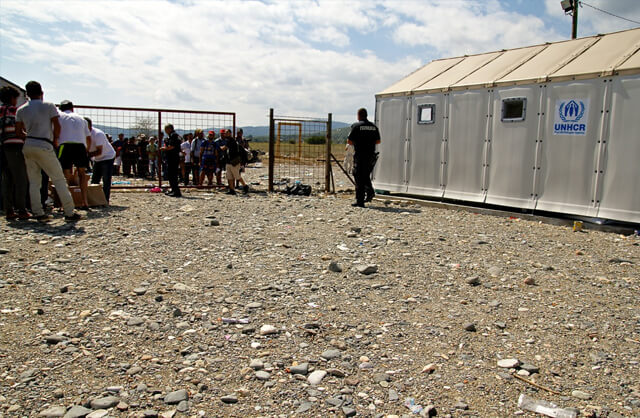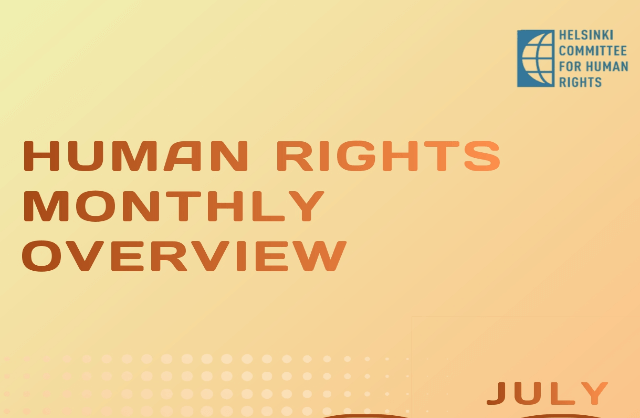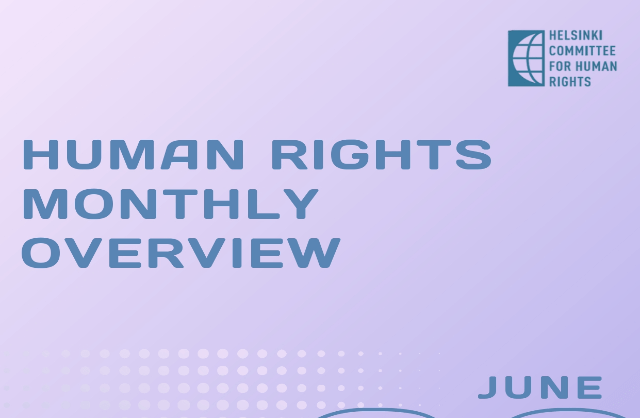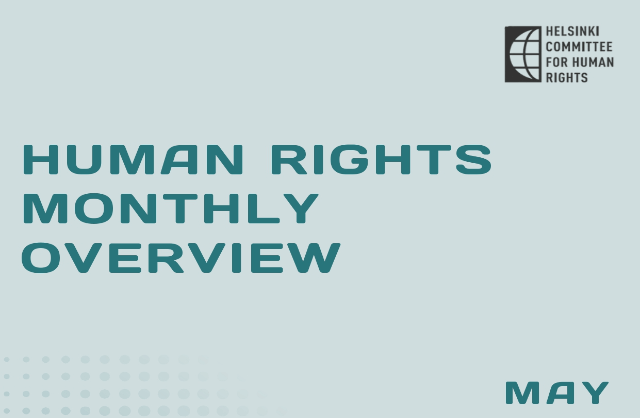The situation at the border crossings Gevgelija and Kumanovo for the period 28.11.2016 – 11.12.2016
December 15, 2016

The two weeks report on the situation at the border crossings Gevgelija and Kumanovo includes the following topics: Available facilities and conditions at the camp and Institutional treatment.
Gevgelija
Available facilities and conditions
The number of refugees in the camp amounted to 99 in the course of the two weeks, but increased stirring has been observed among the groups caught up outside the camp, and then deported to Greece.
Institutional treatment
The presence of members of foreign police services can still be noticed in the camp and in the vicinity of Gevgelija. There are police officers from Serbia, Croatia, Austria, the Czech Republic and Slovakia present.
A seven member family originating from Syria, who had submitted an asylum request on 04.11.2016, and was transported from the camp in Gevgelija to the Shelter Center for Asylum Seekers[1] in Vizbegovo, got back to the camp on 10.12.2016. Due to the bad conditions in the Center in Vizbegovo, they decided to leave it, with the intention of going back to the Republic of Greece. According to them, they are the last family that stayed in the Shelter Center from the group of asylum-seekers who were accommodated in the Center in Vizbegovo. In the course of the night, the family was transported to Greece.
In the course of these two weeks, a total of 35 refugees were caught down illegal roads across the country and were transported to Greek territory. There are groups of various origin among them, i.e. groups from Syria, Afghanistan, Pakistan, Iraq and Algeria. What is characteristic of the groups is that one 7-member group originating from Syria was caught by the police on the Kosovo side, which is a first time. Nearly all of the refugees who have been caught have been trying to transit on several occasions and have been brought back from Serbia on several occasions (some of them for the third time) to Macedonia and then taken to Greece. One juvenile was also found among the people in the groups (16), who after being assigned a custodian, was supposed to be relocated to the Safe House in Skopje, for the duration of the procedure before he is reunited with his family in Athens, Greece. The juvenile, along with another person, was caught as a part of a group who was travelling by taxi, and was intercepted by the police. It is unknown what happened to the rest of the group.
Representatives of the Asylum Sector under MoI paid a visit to the camp in order to interview a six-member family originating from Iraq who expressed intent to submit an asylum request. After the talk, the family gave up on the request.
Kumanovo
Available facilities and conditions
The number of refugees in the camp is around 100, 60 of whom are officially registered, while the rest of them are unregistered. About 20 refugees are residing in the vicinity of the camp, and are provided with food from the camp, and sometimes allowed in, in order to get warm. There is a large number of juvenile children among them.
On 29.11.2016, representatives of the Ombudsman paid a visit to the camp, as well as a French delegation, which got acquainted with every aspect of the work in the camp.
The camp is open, so all the refugees are able to leave it at any time. In the course of these two weeks, there was an organized outing for the children from the camp who visited Skopje.
Washing and drying machines have been put into operation. There is regularly hot water in the showers.
Institutional treatment
Two families who are staying the camp, one of which consists of a single mother with two children from Palestine and another four-member family originating from Iraq, expressed intent to seek asylum. On this occasion, representatives from the Asylum Sector under MoI paid a visit to the camp and had a talk with the refugees, in the presence of police officers. After the talk, the families gave up on the asylum request.
The Helsinki Committee has observed two cases (one in Gevgelija and one in Tabanovce), in which after having a conversation with the representatives of the Asylum Sector, the refugees gave up on their intent to seek asylum. We believe that these cases are indicative, i.e. that a practice of discouraging refugees from seeking asylum to the Republic of Macedonia is established by our civil servants. We warn that this practice must be discontinued, because it may be considered to be jeopardizing the right to seek asylum of the refugees who have been caught on the territory of the Republic of Macedonia.
In the course of the week, a family from Afghanistan arrived to the camp, where they were allowed to temporarily stay, i.e. they were allowed to get warm and take some food, and then they were forced to leave the camp. In another case, a woman who arrived in the camp with four kids, was temporarily sheltered in the camp at the insistence of the Red Cross.
Situation at the shelter centers in the Republic of Macedonia
The number of refugees accommodated in the shelter centers is not available.
Irregular migration
In the course of this week, the Ministry of Interior did not register a single criminal-legal event related to refugees or migrant-smuggling in its bulletins.


